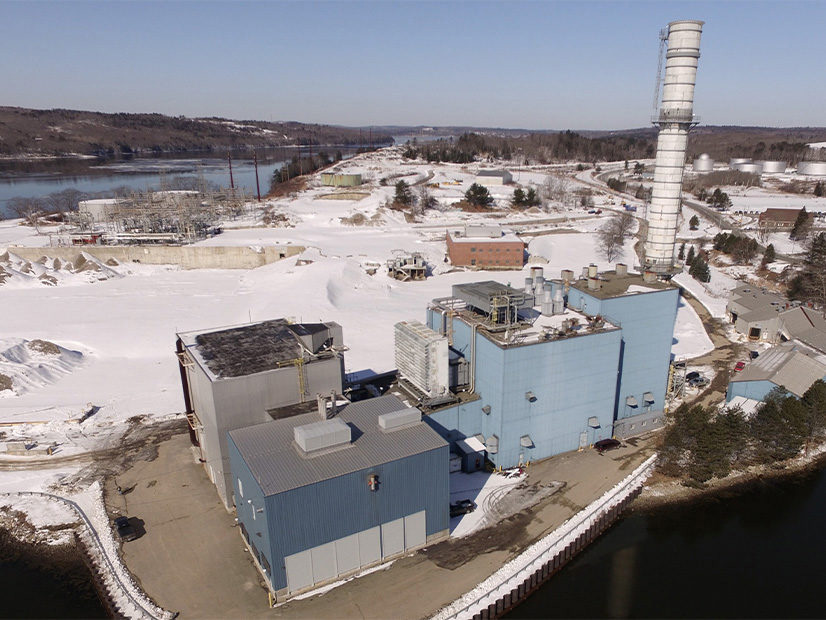Two key Republican senators want FERC to play a more active, public role in evaluating the potential impacts of the power plant emissions rules EPA proposed in May. (See EPA Proposes New Emissions Standards for Power Plants.)
Energy and Natural Resources (ENR) Committee Ranking Member Sen. John Barrasso (R-Wyo.) and Environment and Public Works Committee Ranking Member Sen. Shelley Moore Capito (R-W.Va.) sent a letter to the commission Wednesday urging it to hold a series of technical conferences on the rule.
“The proposal presents unjustifiable claims about the future availability of technologies — including carbon capture, clean hydrogen and the related infrastructure — used to power our electric grids,” Barrasso and Capito wrote in the letter. “In light of recent testimony before Congress and the projected impact of the Proposed Clean Power Plan 2.0, we ask you to convene as soon as possible a series of technical conferences to assess the potential impact of the proposed rule on electric reliability.”
The Federal Power Act requires FERC to protect electric reliability through mandatory standards and Congress more generally looks to the commission to safeguard the quality of interstate electric and natural gas service, the two wrote.
The ENR Committee recently held a pair of hearings on FERC oversight and reliability. During one of them, the commission’s two Republicans warned of a pending reliability crisis. (See Senators Praise Phillips, FERC’s Output at Oversight Hearing.) Commissioner James Danly warned of “an impending, but avoidable, reliability crisis,” and Commissioner Mark Christie said the crisis would occur if the rapid subtraction of dispatchable resources continued unabated.
Chairman Willie Phillips told the committee he was concerned about the pace of power plant retirements and said the commission needed to keep an eye on it. Similar concerns were echoed by the heads of NERC and PJM at a later hearing. (See Robb Warns of ‘Serious Disruptions’ from Grid Transition.)
“These witnesses expressed the critical, consistent concern that the premature retirement of dispatchable generation is frequently driven by government actions, including rulemakings from the EPA,” the letter said. “The Proposed Clean Power Plan 2.0 appears to pose a significant threat to the remaining dispatchable fleet when the nation can afford it least.”
Back when the original Clean Power Plan was finalized in 2015, President Obama’s EPA worked with FERC and the commission held a series of technical conferences on the plan’s potential impact on reliability, which all included testimony from EPA leadership, the letter said.
The letter said that without a similar effort from FERC to a build a record, the commission’s consultations with EPA on the rule “are likely to be ineffective.”
“EPA clearly lacks the expertise to project accurately the impact of its rulemaking on electric reliability without deeply informed and engaged participation from FERC and those subject to its jurisdiction that are charged with the obligation to generate and deliver electricity in order to meet continuous demand for electric service,” Barrasso and Capito wrote.
Behind the Scenes
While the letter argues for more public coordination between the two agencies, former FERC Chair Richard Glick said in an interview that the two closely coordinated on areas that implicated each other’s jurisdictions.
“Behind the scenes, FERC and EPA have conversations often,” Glick said. “FERC often provides technical assistance to agencies like the EPA, for instance, if there’s a concern about a particular upcoming rulemaking that EPA is looking at and what that impact might be on the reliability of the grid.”
Those kinds of conversations happened when Glick was at the agency, and he expects they have continued, though he acknowledged not having inside information about what has occurred since he left. It is ultimately up to Phillips whether he wants to go the more formal route of technical conferences as requested by the two senators, Glick said.
Any information shared between the agencies behind the scenes is going to be part of the public record anyway, Glick said.
The senators’ letter also complained about EPA’s decision to grant a brief extension for its comment deadline to Aug. 8, when many parties, including key trade associations and the ISO/RTO Council, had asked for an extension into the fall.
An EPA spokesman said the agency would respond to all comments in its final rule when it is issued. In the proposed rule itself, the EPA said it would coordinate with FERC and mentioned it signed a memorandum with the Department of Energy this spring that included consultation with the commission, NERC and state regulators. (See: DOE, EPA Team Up on Reliability Efforts.)
Electric Power Supply Association CEO Todd Snitchler said in a statement that trade group would support public coordination between FERC and EPA on the rule’s potential impacts, of which the group has been critical since it was released.
“While we support and our members actively contribute to the expansion of cost-effective clean energy, EPSA remains deeply concerned about the potential impact of the EPA’s proposed rules on critical natural gas power plants needed to provide reliable electric supply,” Snitchler said.
No existing commercial power plants in the country are using carbon capture and sequestration and no current technologies can meet 24/7 demand that can be “deployed quickly, cost effectively and at scale to fill the gap left by existing resources likely to be put out of business by the EPA’s aggressive new restrictions,” he added.


